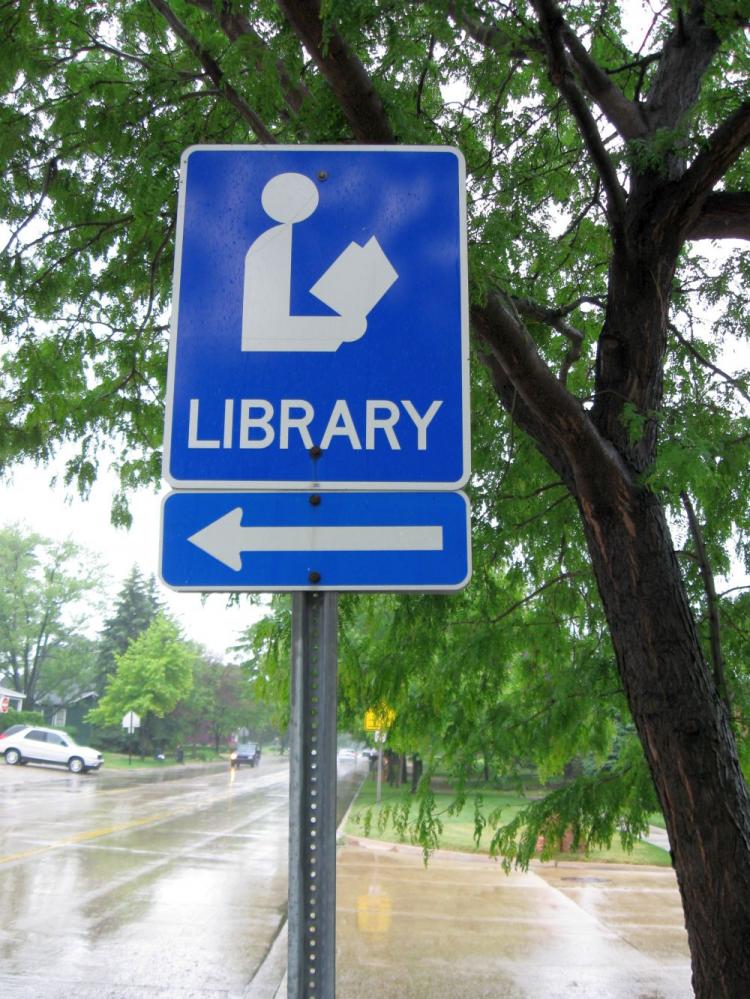DETROIT—June 23 marks the sixth anniversary of The United States v. The American Library Association, the Supreme Court ruling which mandated that public libraries must install filtering software on their computers to protect minors from viewing pornography. It is also the last major court case of many, which has skirted around the issue of adults viewing internet pornography in libraries, making it unclear whether such activities should legally be viewed as public indecency, or tolerated as a First Amendment right.
Though many organizations, such as the American Library Association and the Federal Communications Commission, highly advocate use of filters when minors use computers, even they have yet to officially address concerns about adults viewing pornographic material in public places where children are present.
With the murky stance of the law, it has been left up to the libraries themselves to decide how to view this issue. Various unpleasant encounters have shaped the different Internet policies amongst individual libraries. However, they take roughly the same stance on the subject, finding the use of public computers to view pornographic material not only awkward, but morally reprehensible.
A librarian for the Shelby Township Public Library in Shelby Township, MI said, “Ours is a family friendly library for everyone’s enjoyment. As soon as we see someone looking at an inappropriate Web site, we will immediately shut off the computer. We record their library card number and verbally warn them, explaining why the computer was closed. After three warnings, you lose your computer privileges at our library, then your only recourse is to appeal to the board of directors to reinstate your privileges.”
On May 3, 2009, the corrected plaintiffs opening brief was officially certified in Washington State Supreme Court case of Bradburn v. North Central Regional Library District, the first case of library patrons suing a library for its refusal to disable Internet filters for an adult patron. In a claim heavily supported by the American Civil Liberties Union, Sarah Bradburn, Pearl Cherrington, Charles Heinlen and the Second Amendment Foundation accuse the North Central Regional Library District of not only refusing to disable filters, but also blocking Web sites that were not obscene such as Youtube.com, Myspace.com, and Womenandguns.com.
According to the American Library Association, prior to the 2003 United States v. the American Library Association ruling, 52.1 percent of libraries with Internet access had no Internet filtering whatsoever.
Though the American Library Association has made no exact statistics available regarding filtering since 2002, it would only logically follow that any library receiving federal funding in the current economy would be desperate to keep it.
Though many organizations, such as the American Library Association and the Federal Communications Commission, highly advocate use of filters when minors use computers, even they have yet to officially address concerns about adults viewing pornographic material in public places where children are present.
With the murky stance of the law, it has been left up to the libraries themselves to decide how to view this issue. Various unpleasant encounters have shaped the different Internet policies amongst individual libraries. However, they take roughly the same stance on the subject, finding the use of public computers to view pornographic material not only awkward, but morally reprehensible.
A librarian for the Shelby Township Public Library in Shelby Township, MI said, “Ours is a family friendly library for everyone’s enjoyment. As soon as we see someone looking at an inappropriate Web site, we will immediately shut off the computer. We record their library card number and verbally warn them, explaining why the computer was closed. After three warnings, you lose your computer privileges at our library, then your only recourse is to appeal to the board of directors to reinstate your privileges.”
On May 3, 2009, the corrected plaintiffs opening brief was officially certified in Washington State Supreme Court case of Bradburn v. North Central Regional Library District, the first case of library patrons suing a library for its refusal to disable Internet filters for an adult patron. In a claim heavily supported by the American Civil Liberties Union, Sarah Bradburn, Pearl Cherrington, Charles Heinlen and the Second Amendment Foundation accuse the North Central Regional Library District of not only refusing to disable filters, but also blocking Web sites that were not obscene such as Youtube.com, Myspace.com, and Womenandguns.com.
According to the American Library Association, prior to the 2003 United States v. the American Library Association ruling, 52.1 percent of libraries with Internet access had no Internet filtering whatsoever.
Though the American Library Association has made no exact statistics available regarding filtering since 2002, it would only logically follow that any library receiving federal funding in the current economy would be desperate to keep it.







